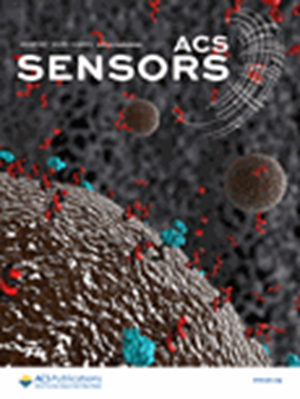A Patient-Centered Approach in Sensor Science: Embracing Patient Engagement for Translational Clinical Technologies
IF 9.1
1区 化学
Q1 CHEMISTRY, ANALYTICAL
引用次数: 0
Abstract
With the goal of impacting patient quality of life and outcomes, sensor science offers significant potential to revolutionize healthcare by providing advances in the detection of molecular biomarkers for personalized clinical technologies. The sensor community has achieved significant technical advancements that can impact diagnostics, health monitoring, and disease treatment; however, many sensor innovations remain confined to the laboratory, failing to bridge the translational gap between research and real-world clinical applications. This perspective presents a new direction for the sensor community, where sensor development centers on the needs and experiences of the primary beneficiaries: the patients. We provide guidelines and resources for researchers to engage with patients early and continuously throughout the research process to inform sensor specifications and better align sensor technologies with real-world clinical needs, improving their adoption and impact. We also present examples for implementing a patient-centered approach in sensor development and planning for patient engagement in sensor research. In the design of impactful sensors for patients, researchers must expand focus beyond technical specifications to embrace a patient-centered approach, which will likely lead to new opportunities for collaboration and evolution in the sensor science community.

以患者为中心的传感科学方法:拥抱转化临床技术的患者参与
传感器科学的目标是影响患者的生活质量和结果,通过为个性化临床技术提供分子生物标志物检测方面的进步,为彻底改变医疗保健提供了巨大的潜力。传感器社区已经取得了重大的技术进步,可以影响诊断、健康监测和疾病治疗;然而,许多传感器创新仍然局限于实验室,未能弥合研究与现实世界临床应用之间的转化差距。这一观点为传感器社区提出了一个新的方向,传感器的发展以主要受益者——患者的需求和经验为中心。我们为研究人员提供指导方针和资源,以便在整个研究过程中尽早和持续地与患者接触,以告知传感器规格,并更好地将传感器技术与现实世界的临床需求结合起来,提高其采用率和影响力。我们还介绍了在传感器开发中实施以患者为中心的方法和规划患者参与传感器研究的例子。在为患者设计有影响力的传感器时,研究人员必须将重点从技术规范扩展到以患者为中心的方法,这可能会为传感器科学界的合作和进化带来新的机会。
本文章由计算机程序翻译,如有差异,请以英文原文为准。
求助全文
约1分钟内获得全文
求助全文
来源期刊

ACS Sensors
Chemical Engineering-Bioengineering
CiteScore
14.50
自引率
3.40%
发文量
372
期刊介绍:
ACS Sensors is a peer-reviewed research journal that focuses on the dissemination of new and original knowledge in the field of sensor science, particularly those that selectively sense chemical or biological species or processes. The journal covers a broad range of topics, including but not limited to biosensors, chemical sensors, gas sensors, intracellular sensors, single molecule sensors, cell chips, and microfluidic devices. It aims to publish articles that address conceptual advances in sensing technology applicable to various types of analytes or application papers that report on the use of existing sensing concepts in new ways or for new analytes.
 求助内容:
求助内容: 应助结果提醒方式:
应助结果提醒方式:


